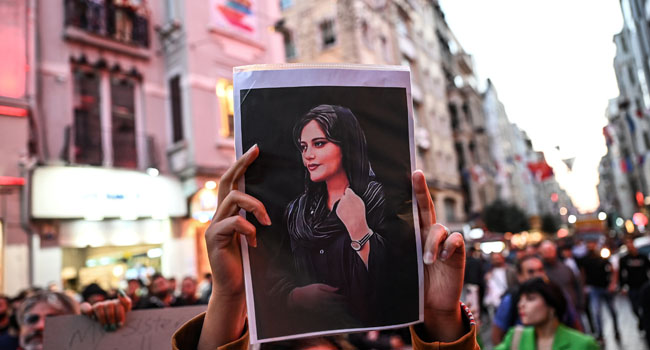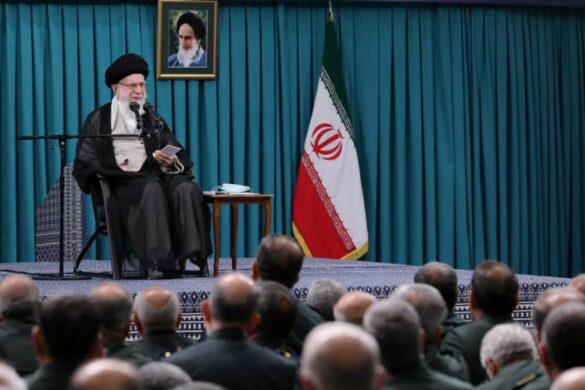The United States placed Iran’s morality police on its sanctions blacklist Thursday following the death in custody of Mahsa Amini, a 22-year-old arrested for allegedly wearing her hijab headscarf improperly.
The US Treasury said the morality police were “responsible” for Amini’s death, which has sparked an outpouring of popular anger, as it announced the sanctions “for abuse and violence against Iranian women and the violation of the rights of peaceful Iranian protestors.”
The sanctions move was taken as violent protests erupted across Iran following the death last week of Iranian-Kurdish Amini, who had been arrested by the public morality unit of the national police.
“Mahsa Amini was a courageous woman whose death in morality police custody was yet another act of brutality by the Iranian regime’s security forces against its own people,” said Secretary of the Treasury Janet Yellen.
“We condemn this unconscionable act in the strongest terms and call on the Iranian government to end its violence against women and its ongoing violent crackdown on free expression and assembly,” Yellen said in a statement.
According to an official count, at least 17 people have died in unrest following Amini’s death as women burned their headscarves and protesters denounced the government leadership and restrictions on women.
The Oslo-based non-government group Iran Human Rights said at least 31 civilians had been killed in six nights of violence.
The Treasury also placed sanctions on Mohammad Rostami Cheshmeh Gachi, the head of the morality police, Haj Ahmad Mirzaei, the head of the morality police’s Tehran division, and five other senior security officials involved in the repressions of protestors.
It said Rostami had announced earlier this year that women would be punished for refusing to wear a hijab.
“The Iranian government needs to end its systemic persecution of women and allow peaceful protest,” said US Secretary of State Antony Blinken.
“The United States will continue to voice our support for human rights in Iran and hold those who violate them to account,” he said in a statement.
Treasury sanctions aim to freeze any assets those designated might have under US jurisdiction and forbid any American individuals or companies — including international banks with US operations — from doing business with them, effectively limiting their access to global financial networks.




